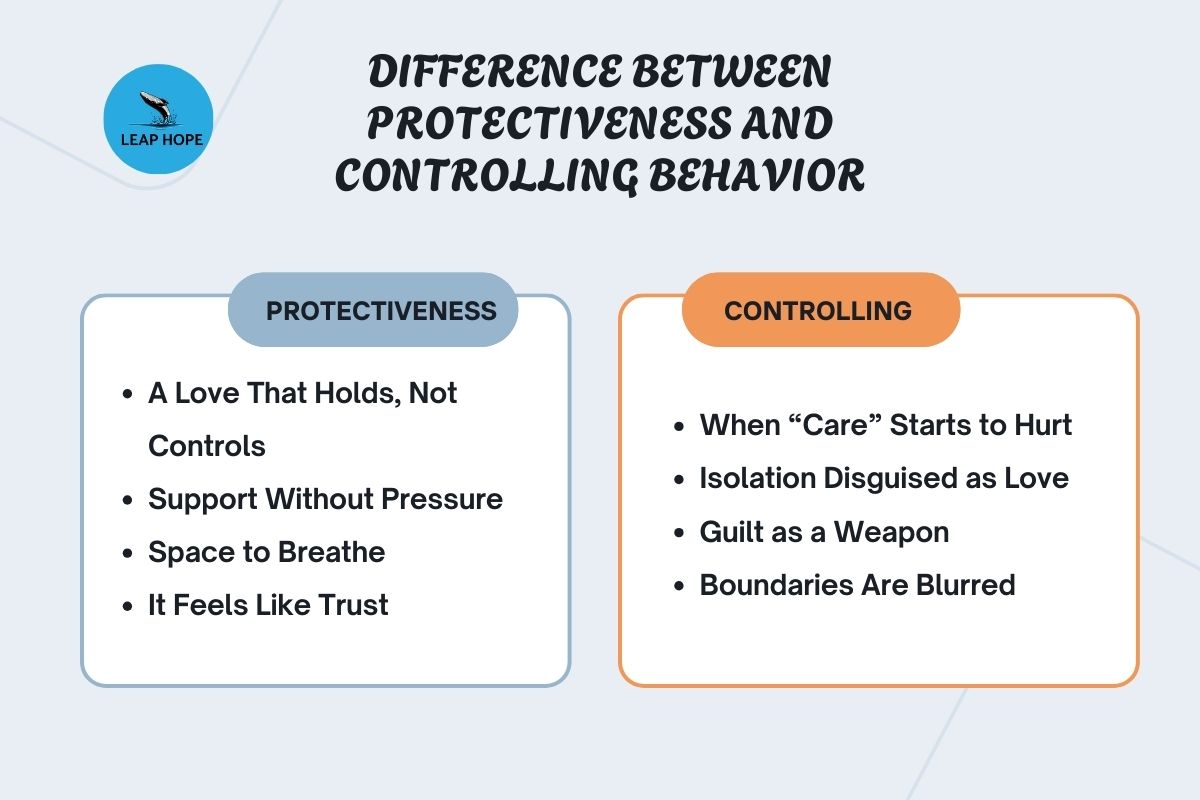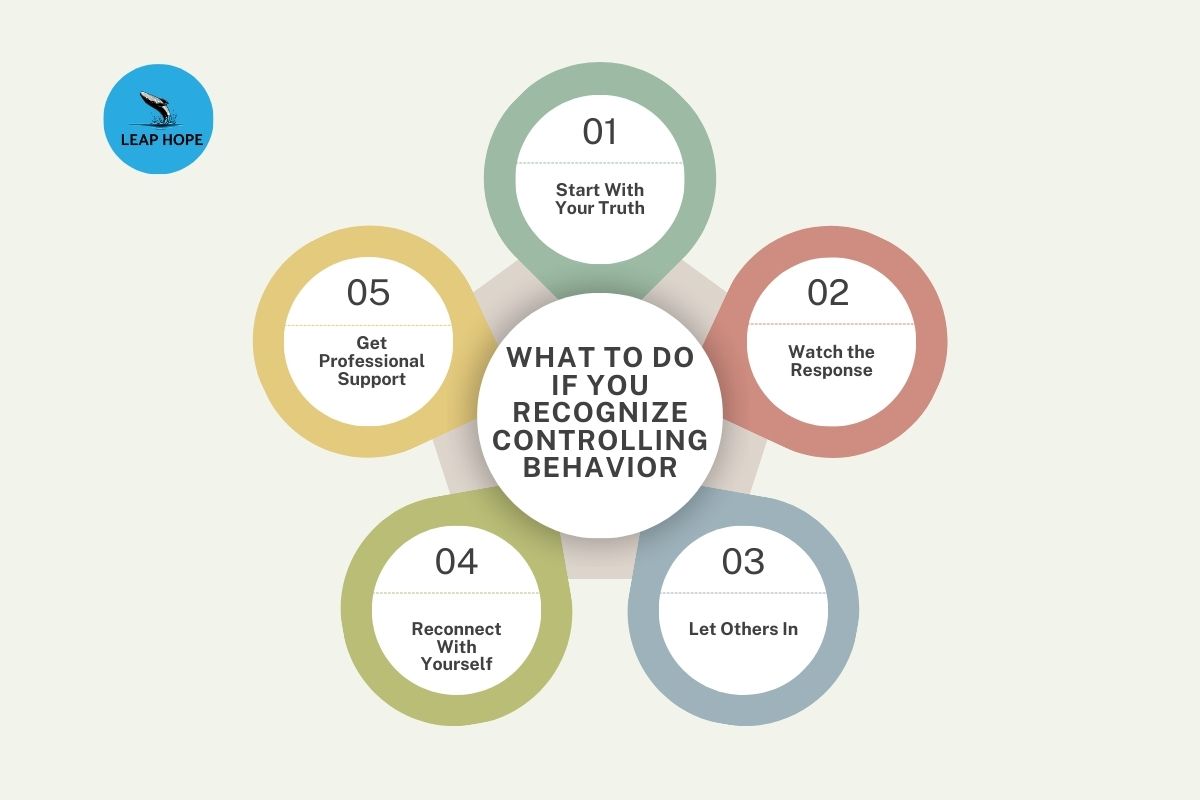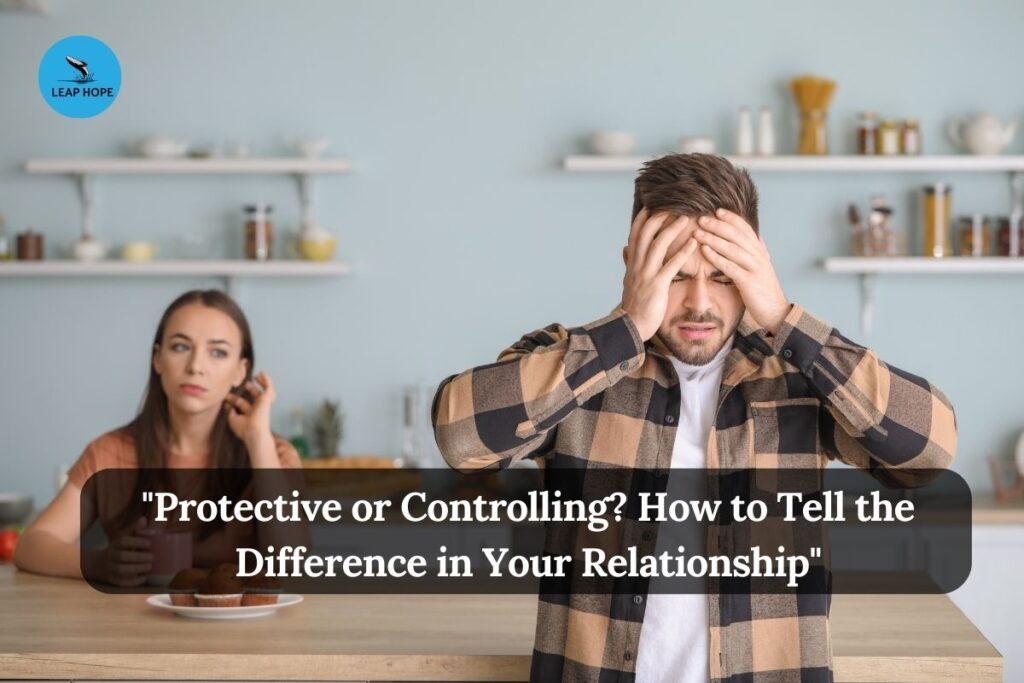Most controlling relationships don’t begin with control. They begin with care that feels reassuring. A message asking you to reach safely. A comment about who you spend time with. A suggestion framed as concern. None of it feels threatening at first.
The confusion usually starts later, when you notice your decisions changing. You hesitate before making plans. You explain yourself more than you used to. You start adjusting, not because you want to, but because it feels easier than dealing with their reaction.
This is where many people get stuck. Protective behaviour and controlling behaviour can look similar on the surface, especially when there is affection, history, or genuine worry involved. The difference isn’t in the words used, but in how much freedom you’re left with after those words are spoken.
If you’re questioning whether you’re being cared for or quietly managed, that uncertainty matters. Healthy protectiveness supports your independence. Control slowly narrows it.
Understanding the difference isn’t about blaming your partner, it’s about recognising what’s happening to you, before you lose sight of yourself.
Protective or Controlling? Why They Feel Similar at First
Protectiveness feels like someone walking beside you. Control feels like they’re holding the leash. One gives comfort, the other chips away at who you are. Sometimes it starts small, “I’m just worried about you”, but grows into rules and guilt.
Studies show nearly 1 in 4 women experience controlling behavior from a partner, often without realizing it at first. Real love doesn’t shrink you. If you find yourself asking for permission more than being supported, something deeper may be going on.

What Healthy Protectiveness Actually Looks Like in a Relationship
A Love That Holds, Not Controls
The kind of protectiveness that feels right doesn’t limit you; it sees you fully and wants more for you, not less. A truly protective partner will cheer you on while you chase your dreams, not pull you back out of fear.
Support Without Pressure
When things get tough, they offer comfort, not answers you didn’t ask for. They don’t try to “fix” you, just stand beside you. And if you’ve ever found yourself carrying guilt that doesn’t belong to you, this guide can help you gently let go of that weight.
Space to Breathe
They check in because they care, not because they need to know. Your phone isn’t monitored. Your choices aren’t questioned.
It Feels Like Trust
According to research, couples who respect each other’s independence feel more fulfilled and secure.
True protectiveness feels like a steady presence, not loud, not demanding. Just someone quietly making sure you’re okay, while giving you all the space to be exactly who you are. That kind of love doesn’t shrink you, it lets you breathe.
When Care Turns Into Control: What Controlling Behaviour Looks Like
When “Care” Starts to Hurt
Control doesn’t always look like control. It often hides behind concern, like needing to know where you are all the time, or feeling uneasy when you’re not together.
Isolation Disguised as Love
They might question your friendships or grow cold when you spend time with others, slowly making your world smaller until it feels like they’re the only one in it.
Guilt as a Weapon
You may start feeling selfish for wanting time alone or pursuing your own goals. They don’t say “no”, they just make you feel wrong for wanting more. This can lead to constant tension and conflict, and if you’re stuck in that cycle, here’s a helpful piece on how to stop arguing that might offer some peace and perspective.
Boundaries Are Blurred
They might tell you how to dress or steer your decisions to match what they think is best. Over time, you stop recognizing yourself.
Control often doesn’t feel harmful at first. That’s what makes it difficult to spot. It usually blends into daily life quietly, through small adjustments, repeated explanations, and choices you stop making without noticing. By the time it feels wrong, you’re often already deeply entangled.
Many people later realise they didn’t ignore red flags, they simply didn’t recognise them as control when they were framed as concern.
How Control Is Often Justified as “Care”
Controlling behavior often hides behind words that sound loving, but feel heavy. You may have heard things like:
- “I just want what’s best for you.”
But somehow, your voice disappears in the process. Love shouldn’t silence you. - “If you really loved me, you’d listen to me.”
That’s not love, it’s pressure dressed up as devotion. You shouldn’t have to prove your love by giving up your freedom. - “I’m only doing this because I care.”
Care feels safe and respectful. Not like you’re being watched or managed. - “You’re just too naïve to understand the danger.”
This one cuts deep; it makes you question your own mind. But you’re allowed to trust your instincts.
Signs You’re in a Controlling Relationship (Even If It Doesn’t Look Obvious)

It Starts with “Just Checking”
What begins as sweet concern, texts and check-ins, starts to feel like you’re being tracked, not cared for.
The World Gets Smaller
They say your friends don’t understand you, or that your family’s bad for you. Bit by bit, you pull away from people who used to be your safe place.
Guilt Creeps In
When you ask for space or make your own plans, they act hurt. You find yourself apologizing for wanting anything outside the relationship.
Boundaries Become Negotiable
You say no, but it doesn’t stick. They press, guilt you, or twist your words. Over time, you stop setting limits at all.
Jealousy Feels Like a Warning
Even casual chats with others make them tense or cold. So you shrink your world, not to upset them. Sometimes, that shrinking is tied to deeper fears. If you’ve ever asked yourself, “Why am I scared of intimacy in relationships?”
If You’re Realising This Might Be Control, Here’s What to Do

Start With Your Truth
If something feels off, it probably is. Speak up about what makes you uncomfortable. Boundaries aren’t demands; they’re self-respect in action. And anyone who truly cares will want to understand.
Watch the Response
How they react matters. If they get defensive or angry when you express your feelings, it’s not your fault; it’s a red flag. Change can only happen when both people are willing.
Let Others In
You don’t have to figure it out alone. Confide in someone you trust. Sometimes, someone outside the relationship can see what you’ve been slowly taught to ignore.
Reconnect With Yourself
Control often chips away at who you are. Spend time with the things and people that remind you of your worth. That clarity is powerful. And if your relationship has roots in early emotional wounds, understanding “daddy issues in relationships” might gently reveal what’s underneath.
Get Professional Support
Emotional control is more common than many people realise, which is why it often goes unnoticed for so long. Having space to talk things through with someone neutral can help you make sense of what you’re experiencing, separate concern from control, and regain trust in your own judgement.
Protectiveness vs Control: How to Tell Which One You’re Experiencing
- Do you still feel like your choices are your own?
Or do you hesitate, worrying how they’ll react before you decide? Your voice matters. - Does your partner encourage your independence?
Not just say it, but truly support you being your full, separate self? That kind of love lets you grow, not shrink. - Do you feel safe, or quietly suffocated?
Pay attention to your body. Do you breathe easier when they’re around, or only when they’re not? - Are their actions rooted in love, or in fear and control?
Real love doesn’t need to keep score or hold power. It listens, respects, and lets you be you.
Final Thoughts
Wanting love that feels safe isn’t unrealistic. It’s a basic expectation. But when a relationship starts making you doubt your instincts, soften your opinions, or edit parts of yourself just to keep things calm, that’s no longer protection. That’s control, even if it’s wrapped in concern.
The most reliable signal isn’t what your partner says, it’s what’s happening to you. Are you growing, or quietly shrinking? Are your choices still yours, or filtered through fear of reaction?
Healthy love doesn’t require constant self-adjustment. It doesn’t ask you to trade autonomy for closeness. It allows space for your voice, your boundaries, and your independence without making you justify them.
If something feels off, that feeling is information. Paying attention to it isn’t dramatic or disloyal. It’s self-respect.
FAQs
How do you know if it’s protectiveness or control?
Pay attention to how it feels in your body and in your day-to-day life. When someone is being protective, you still feel free to make choices. When it’s control, you start hesitating, explaining yourself, or shrinking parts of your life to keep things calm. The shift is subtle, but the feeling is clear.
What if they say they’re just worried about you?
They might be. But real concern doesn’t take away your voice. If worry turns into pressure, rules, or guilt when you don’t comply, that’s no longer care. You’re allowed to feel looked after without feeling managed.
Am I being dramatic for feeling this way?
No. Most people who end up in controlling relationships felt something was off long before they could explain it. You don’t need proof or a breaking point to trust that discomfort. If it keeps coming back, it’s worth listening to.
They always need to know where I am, should that worry me?
Ask yourself why you’re sharing. If you do it freely and it feels reassuring, that’s one thing. If you check in to avoid tension, questions, or accusations, that’s different. Fear-driven check-ins aren’t about safety.
Can love still feel like love and still be unhealthy?
Yes. You can care deeply about someone and still feel smaller around them. Love doesn’t disappear just because something is wrong, but healthy love doesn’t cost you your independence or sense of self.
What if my partner says I’m insecure or controlling when I ask for updates?
Asking for basic communication isn’t insecurity. In healthy relationships, updates come from care, not obligation. If your concerns are dismissed instead of discussed, the issue is avoidance, not control.
What if my partner wants freedom and refuses to communicate?
Freedom doesn’t mean disappearing or refusing accountability. A healthy partner values independence and communication. When freedom is used to shut down conversation, emotional safety starts breaking down.
What if their behaviour feels reckless, not loving?
Concern is reasonable when behaviour affects trust or safety. If partying, disappearing, or ignoring boundaries keeps repeating without discussion, it’s not about control, it’s about reliability and respect.
What if they’re caring but their protectiveness feels suffocating?
Care should feel reassuring, not limiting. If concern turns into monitoring, guilt, or pressure, the behaviour has crossed into control, even if the intention started as love.
How do I know if I’m asking for too much?
You’re likely not asking for too much if your needs involve clarity, respect, and communication. Feeling anxious, unheard, or dismissed repeatedly is a sign of imbalance, not excess.




